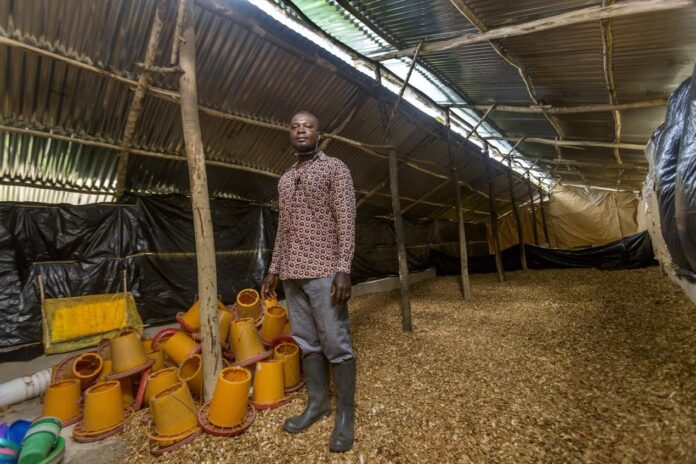Following its recent €30 million contribution in support of the International Fund for Agricultural Development’s (IFAD) response to the global food and energy crisis, Germany has committed to investing an additional €22 million in financial services and products designed to strengthen the agricultural business sector in poor communities.
Germany’s Ministry for Economic Development and Cooperation’s (BMZ) contribution will boost rural development and provide small – and medium-sized enterprises (SMEs) and small-scale farmers with better access to finance through IFAD’s Private Sector Financing Programme (PSFP), particularly in nine African countries (Benin, Burkina Faso, Cameroon, Côte d‘Ivoire, Malawi, Mali, Nigeria, Togo, and Zambia).
“Agricultural SMEs along the food value chain are essential to small-scale farmers, they provide services, inputs, and link to a multitude of market opportunities, increased incomes and employment in rural areas,” said IFAD President, Alvaro Lario.
A lack of access to financial services prevents agricultural SMEs in rural areas from developing enough to engage with larger markets and meaningfully contribute to global demands for more diverse and nutritious food. IFAD’s private sector window aims to address this finance gap through loans, risk management instruments, such as guarantees, and equity investments.
“Providing loans to rural financial institutions is providing a lifeline to rural development,” said President Lario. “Combining GIZ’s [Germany’s development cooperation agency] technical assistance with IFAD’s financial expertise is a complimentary partnership that will deliver efficient and impactful support to agricultural SMEs, creating inclusive entrepreneurial opportunities for all,” he added.
Germany’s increased support to vulnerable rural people comes as global hunger, malnutrition and poverty levels are on the rise and expected to worsen in 2023. Small-scale farmers, who produce one-third of the world’s food, are being hit hard by rising costs and face an upcoming year of stagnate global growth.
Through the private sector window, IFAD will provide two-thirds of the allocated funds in the form of low-interest loans to rural financial institutions. Germany’s development cooperation agency – GIZ – will provide technical assistance in agricultural finance, developing credit products for the agricultural sector, including seasonal loans.
BMZ also joins the advisory committee of the PSFP, to provide strategic guidance for the implementation of IFAD’s work with private partners.
Since the establishment of IFAD in 1977, Germany has contributed a total of US$711 million in core funding to IFAD’s work on climate action, gender equality, food and nutrition security, working towards equitable and sustainable food systems. In addition, Germany has provided loans for up to €800 million through KfW, Germany’s public development bank. With its latest contributions, Germany has provided a total of €167 million in supplementary funds to support inclusive sustainable value chain development, climate adaptation, and youth employment.








